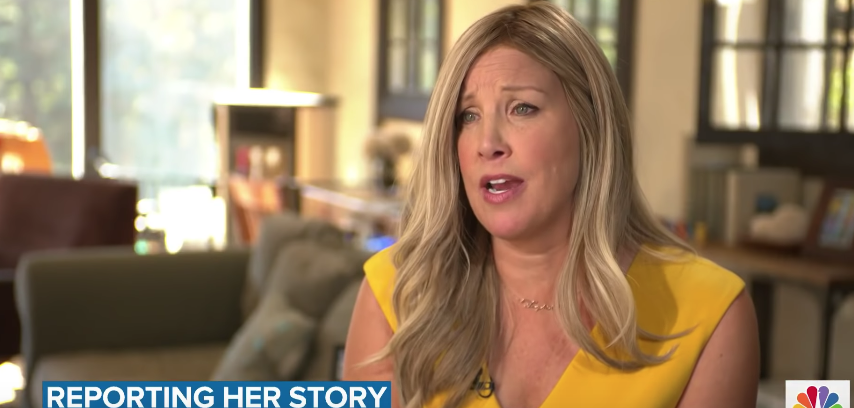
In September, on her 47th birthday, NBC correspondent Kristen Dahlgren noticed a slight dent in her right breast. Within days, she was diagnosed with Stage II breast cancer. Dahlgren credits her previous reporting on unusual breast cancer symptoms for saving her own life in a recent Today interview, which you can view above, and in an essay on Today.com.
“If I hadn’t done that story, I might have ignored the change in my breast,” she writes. “I might have assumed a mammogram would have picked up cancer. I have since learned they are only 87% effective and are less sensitive in women like me with dense breast tissue.”
In 2016, Dahlgren interviewed a doctor at the Mayo Clinic about a research study finding that around one in six women diagnosed with breast cancer went to the doctor with a symptom other than a lump. (Although lumps are the most commonly reported symptom, the study identified others, including nipple changes, dents, dimples, pain and redness.)
Dahlgren also spoke with a woman who was diagnosed after insisting on a second opinion. The woman had noticed a subtle change in the shape of her breast that eventually turned out to be Stage III breast cancer.
“I remember thinking that the story would save lives,” Dahlgren writes. “I had no idea the life it would save would be my own.… Beneath the dent, I didn’t feel a lump, but something I might describe as a ‘thickening.’ It just felt different than everywhere else.”
Dahlgren says breast cancer was the last thing on her mind. She’s in her 40s and active. She doesn’t have a family history of early breast cancer. And a mammogram in April had come back negative.
Dahlgren admits to having let years pass between previous screenings. She might even have brushed off the dent had it not been for the 2016 story. Even though she’d already gotten a mammogram, in September, she got a second one as well as an ultrasound and subsequently learned she had the disease. (Current breast cancer screening recommendations vary, but some recommend annual mammograms starting at age 40 for women of average risk. Click here to read more.)
Right now, Dahlgren’s life is “filled with doctor appointments, chemotherapy and, yes, tears.” Despite those moments, she’s doing well now thanks to the doctors and the support of loved ones. She even recently met up with the doctor she interviewed three years ago to help other women look for signs of breast cancer.
“I end 2019 full of gratitude, knowing there is a long road ahead but hopeful that sharing my story might make a difference for someone else,” she writes.
For related coverage, read “Cancer Health Basics: Breast Cancer” and “MRI Scans Detect More Cancer in Women With Dense Breasts.”
